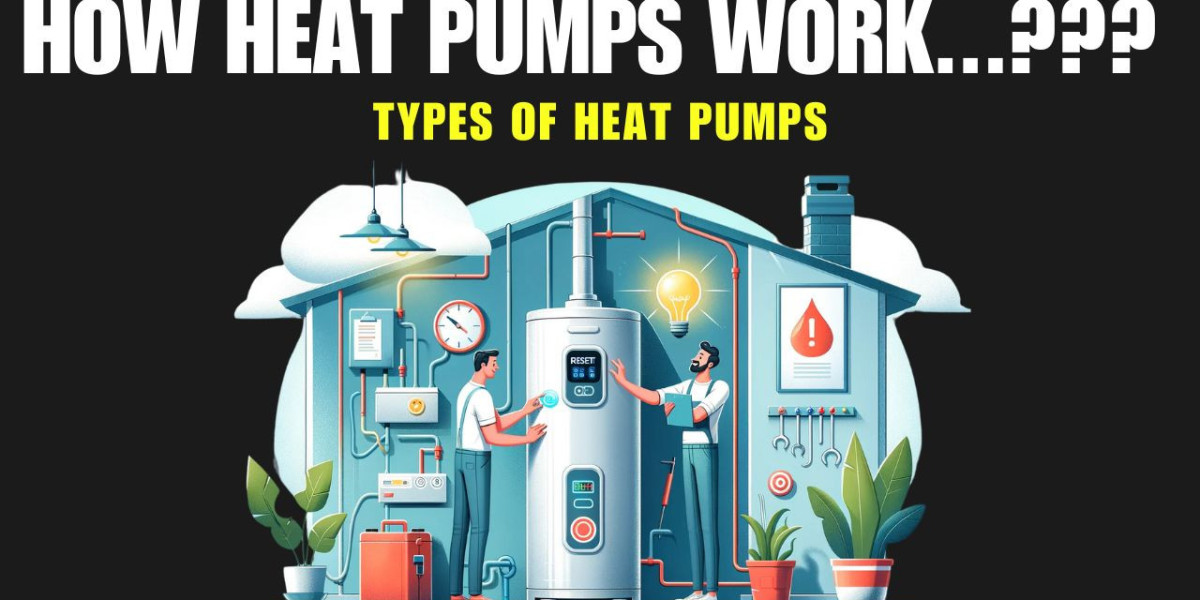Introduction
A heat pump is a versatile system that provides both heating and cooling by transferring heat rather than generating it. As energy-efficient solutions gain popularity, heat pumps are being installed in more homes across the UK. According to the International Energy Agency (IEA), sales of heat pumps increased by 11% globally in 2022, signaling a strong shift towards greener technologies. Homeowners are realizing that a heat pump system can reduce their energy bills and carbon footprint significantly. In this beginner's guide, we’ll explore how heat pumps work and why they’re becoming the go-to choice for sustainable home comfort.
How Heat Pumps Work
At its core, a heat pump moves heat from one place to another. During colder months, it extracts heat from the outside air or ground and transfers it indoors. In warmer months, it does the opposite, removing heat from inside your home to cool it. This process is achieved using a compressor, refrigerant, and coils that allow the system to transfer thermal energy. Because it moves heat rather than creating it, a heat pump installation is typically more energy-efficient compared to conventional HVAC systems, making it a preferred solution for both heating and cooling.
Types of Heat Pumps
There are various types of heat pumps designed to suit different climates and needs. The most common type is the air-source heat pump, which extracts heat from the air. This type works effectively in moderate climates and is relatively easy to install. Another option is the ground-source or geothermal heat pump, which draws heat from the ground. While more expensive to install, geothermal systems tend to be more efficient and stable over time because underground temperatures are more consistent. Both systems offer a cleaner alternative to traditional fossil-fuel-based heating methods.
Heat Pump Installation
Installing a heat pump system involves several steps and should be done by professionals to ensure it operates at peak efficiency. Proper placement is key, especially for air-source heat pumps, which require adequate airflow around the unit. For ground-source systems, installation is more complex, involving the digging of loops in the ground. Choosing the right size and type for your home is also critical for optimal performance. Partnering with trusted companies like Boiler Hut can make the heat pump installation process smoother. They ensure that the system is correctly sized and installed according to industry standards, leading to better energy efficiency and a longer lifespan.
Boiler Hut Overview
Boiler Hut is one of the leading providers of high-efficiency heating systems in the UK, with a special focus on renewable technologies like heat pumps. They are committed to offering top-tier products and services, helping homeowners make the switch to more sustainable energy solutions. With years of experience and a strong reputation, Boiler Hut ensures that their clients receive the best advice on the most suitable heating systems for their specific needs.
Boiler Hut’s approach to heat pump installation is comprehensive. They provide detailed assessments to ensure that the chosen system meets the home’s energy demands. Their team of certified engineers handles everything from installation to maintenance, ensuring the system runs efficiently year-round. By combining top-quality equipment with professional service, Boiler Hut helps customers reduce their energy consumption and heating costs.
Heat Pump Cost
The heat pump cost varies depending on the type and size of the system, as well as the complexity of the installation. On average, an air-source heat pump can cost between £7,000 and £13,000, while ground-source systems can range from £14,000 to £19,000. While the upfront cost is higher than conventional heating systems, the long-term savings in energy bills make it a worthwhile investment. According to the UK government, homeowners can save up to £300 annually on energy bills by switching to a heat pump. Additionally, financial incentives like the Boiler Upgrade Scheme make the transition more affordable for homeowners.
Environmental Benefits of Heat Pumps
Switching to a heat pump system offers significant environmental benefits. Unlike gas or oil-fired heating systems, heat pumps use renewable energy sources, like air or ground heat, to provide warmth. This reduces greenhouse gas emissions and reliance on fossil fuels. The UK government’s commitment to net-zero emissions by 2050 underscores the importance of adopting renewable technologies like heat pumps. By installing a heat pump, homeowners can contribute to a greener future while enjoying lower energy bills. Plus, with government incentives like the Renewable Heat Incentive (RHI), it's easier to offset the initial heat pump cost.
Conclusion
A heat pump is an excellent investment for anyone looking to reduce energy costs and make their home more environmentally friendly. Whether it's an air-source heat pump or a ground-source system, these technologies offer efficient heating and cooling year-round. The upfront heat pump cost might seem high, but long-term savings and available financial incentives make it a cost-effective choice. If you're considering switching to a more sustainable home heating solution, Boiler Hut is a trusted name in the industry. They specialize in installing high-efficiency heat pumps, ensuring optimal performance and reduced energy costs.
Call to Action:
Ready to upgrade your home heating system? Get in touch with Boiler Hut today for a free consultation on the best heat pump installation options for your home. With their expertise, you can enjoy the benefits of cutting-edge, energy-efficient technology while lowering your carbon footprint.








